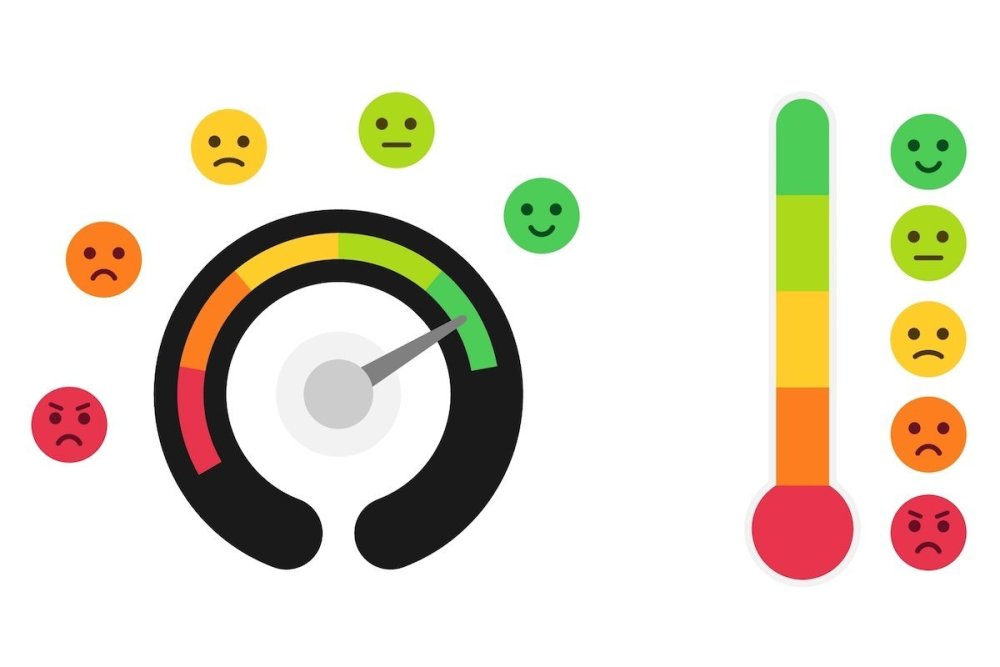How to measure happiness when it means different things to different people? As Ed Gould explains, it is possible. Discover more about the techniques used in mapping and measuring happiness and well-being, and the reasons why it's important.
Measuring happiness is becoming an important tool. Economic growth, physical health and confidence in the future prospects of a person or country are all important factors when assessing and comparing them. However, no institution, nation or group of people can really be properly understood without also factoring in a number of other elements.
And one of those key elements that is becoming increasingly looked upon by academics is happiness. Nevertheless, measuring happiness presents certain challenges. Indeed, how and why should we bother with it at all?
And how to measure happiness scientifically? Well, it's complicated because it relies on mapping subjective well-being. And of course, subjective well-being is just that: an idea that will vary from person to person. What happiness means to you may be totally different for somebody else.

Happiness means different things to us all, so how to quantify it?
In other words, measuring happiness in one individual could mean that their subjective well-being is recorded at a much higher level than another. Who could tell if this is truly accurate? Who's to say that the answer given is in any sense 'wrong'? Shouldn't we abandon the idea of measuring happiness as too complex or too nuanced?
Well, no. This is because refraining from measuring happiness with the best tools available will result in a gap in scientific knowledge. Without some form of assessment of happiness and well-being, it would be impossible to compare the outcomes of certain long-term policy decisions, for example.
MORE LIKE THIS:
- Happiness: What Is It Exactly, Anyway?
- Happiness Is A Choice: 8 Ways To Choose It Today
- How to Find Happiness Within: 5 Ways to Build Inner Joy
One could not compare the differences between two countries undergoing different economic circumstances fully, either. From a political, sociological and interest in humanity point-of-view, measuring happiness has never been so important. So, let's examine how happiness can be measured and delve into the methodologies being used.
So, how to measure happiness?
According to Mark K Setton, D.Phil, the CEO and founder of The Pursuit of Happiness, leading positive psychologists are focussing on the cultivation of positive emotions with a variety of techniques nowadays. The trouble is that well-being and happiness cannot be measured in a single snapshot to determine which of those techniques are most effective.
Setton argues that happiness is rather like physical well-being: multiple measurements and assessments must be made to understand the body's well-being in the round. Likewise, just asking someone how happy they feel would be overly simplistic. As such, his organisation backs the questionnaire approach whereby multiple questions are put to participants in study programmes.
“Refraining from measuring happiness with the best tools available will result in a gap in scientific knowledge.”
As data from these subjective well-being surveys is collated, so spikes and anomalies are evened out. Ideally, discrete data is collected which can then be quantified. Therefore, questionnaires should not ask 'open' questions, such as “How happy are you?” Instead, they should ask participants to score themselves with an instruction to score their happiness level on a scale, for example, between one and ten.
How to measure happiness: questionnaires
There are now many questionnaires that are widely used by academics and scientific researchers to assess happiness levels across the globe. Here are four of the most important:
- The Panas Scale (Watson, Clark, Tellegen)
- The Oxford Happiness Inventory (Argyle and Hill)
- Subjective Happiness Scale (Lyubomirsky & Lepper)
- Satisfaction With Life Scale (Deiner, Emmons, Larsen and Griffin)
According to Todd B Kashdan of the Department of Psychology at the University of Buffalo, the 29-question Oxford Happiness Inventory, which was developed for use back in 2002, overlays some of the important factors involved in assessing oneself in terms of happiness. 
How to measure happiness levels? Questionnaires are a good starting point
Kashdan argues that measures like self-esteem and sense of purpose are taken in the survey but that they're not properly differentiated from one another, leading to an overly ambitious correlation between them.
In spite of the criticism of the particular ways in which questionnaires are put together, few psychologists today would argue that they constitute the best way we currently have of quantifying the qualitative assessments needed to measure subjective well-being.
While the academic debate rages on about the best way of measuring happiness in various questionnaire forms, the scientific community continues to make these assessments in order to better understand happiness and how it impacts on both the individual and society as a whole.
Quantifying happiness: unifying the methodologies
Of course, if one academic study into subjective well-being uses a particular questionnaire, then the results found in that sample group can only inform us of that group of people and of other groups which have been subject to assessments using the same methodology.
“Happiness is rather like physical well-being: multiple measurements and assessments must be made to understand the body's well-being in the round.”
If academics use their own questionnaires, then no matter how carefully the data they collate has been analysed, it's not possible to pool such datasets. Therefore, relatively simple questionnaire formats have been developed so that researchers can use the same scales and the same form of wording around their questions in order to obtain results which can be used together.
The Subjective Happiness Scale is a good example of this sort of approach. The questionnaire can be downloaded by anyone so long as it's for academic research and not commercial use. It uses a simple scoring system of one to seven which cleverly allows people to place themselves in the middle of the scale, at number four, if they feel that's appropriate for them – not all scales allow for this.  Pets bring a lot of people measurable happiness
Pets bring a lot of people measurable happiness
Additionally, it allows researchers to ask negative questions, like those about being unhappy. All the researcher needs to do is to reverse the scoring system to continue to obtain viable and simple-to-understand results.
Another questionnaire that does this is the Better Life Index, the sophisticated survey from the Organisation for Economic Co-operation and Development (OECD). For a more detailed look at the questions it uses to measure happiness, do explore the OECD Guidelines on Measuring Subjective Well-being.
MORE LIKE THIS:
- Joy Vs Happiness: What's the Difference?
- When Life Gives You Lemons, Try Lemonading!
- Is Happiness Genetic? Here's What Science Says
With small sample groups, this approach works conveniently. For mass observations surveys, such as those which measure and compare happiness in every country of the world, it's essential. The Organisation for Economic Co-operation and Development (OECD) has now developed academic guidelines so that data of a similar nature can be gathered.
As such, if you want to know how happy women in South Africa rate themselves compared to retired men in Canada, it should be possible. The OECD is charged with bringing about worldwide progress in 11 areas of well-being, such as employment, health, housing and civic engagement. It needs to understand happiness on a global scale, therefore. Hence the need for a consistent and unified methodology.

Family and connection is a key driver of happiness
Since 2011, when the OECD published its 'How's Life' report, it has been involved with standardising the ways in which the statistical data in many areas are collected, including those devoted to measuring happiness. As such the OECD has made great strides in helping us to understand human happiness around the world.
The takeaway: how to measure happiness
Measuring happiness across global communities is an important tool but when well-being is subjective, how can we do it effectively? Ongoing questionnaire approaches that monitor a society's happiness levels over a period of time seem to be the most effective and reliable tracking technique.
Increasingly organisations such as the OECD have helped to standardise the ways stats around happiness are collected. And while many people may have their own beliefs on what brings them joy and well-being, in reality, the keys to happiness are essentially the same for all humans (some people just don't realise it yet!). ●
images: shutterstock/VectorArtist7, Unsplash, shutterstock/PeopleImages.com - Yuri A, shutterstock/PeopleImages.com - Yuri A
Written by Ed Gould
 Ed Gould is a UK-based journalist and freelance writer. He's a practitioner of Reiki.
Ed Gould is a UK-based journalist and freelance writer. He's a practitioner of Reiki.




Join the conversation
You are posting as a guest. If you have an account, sign in now to post with your account.